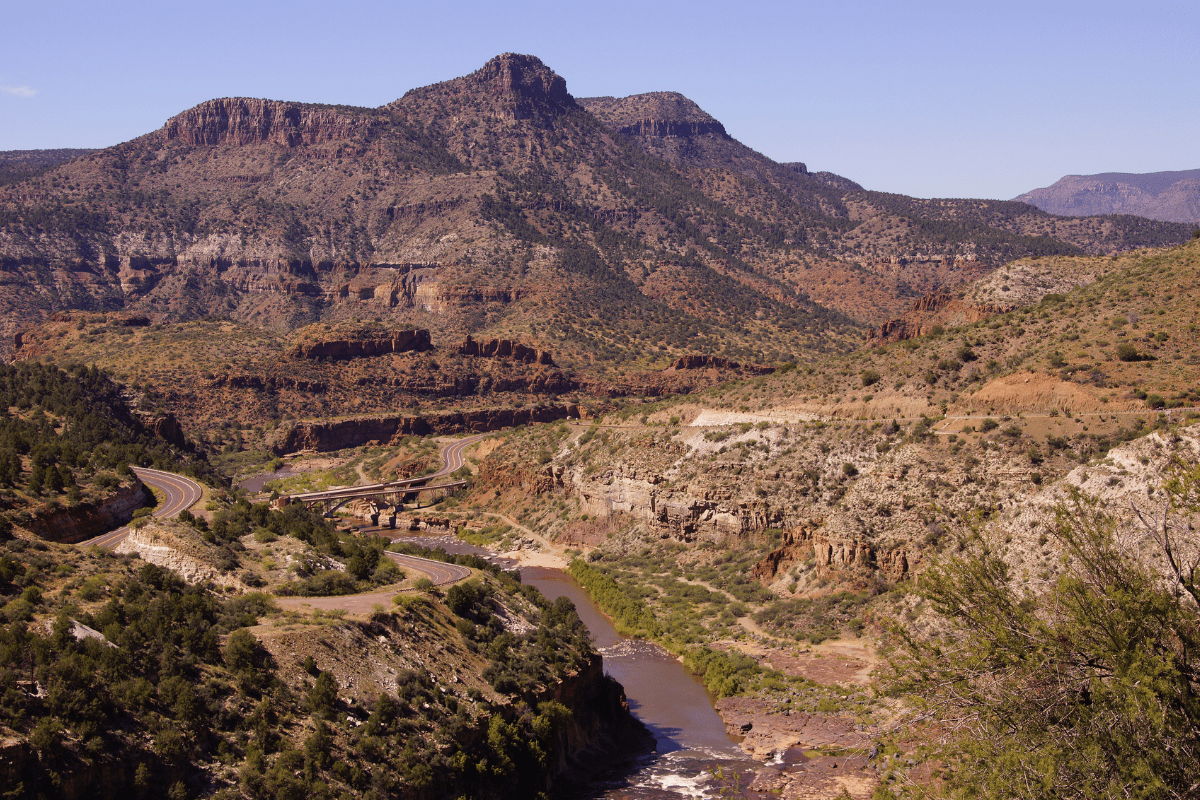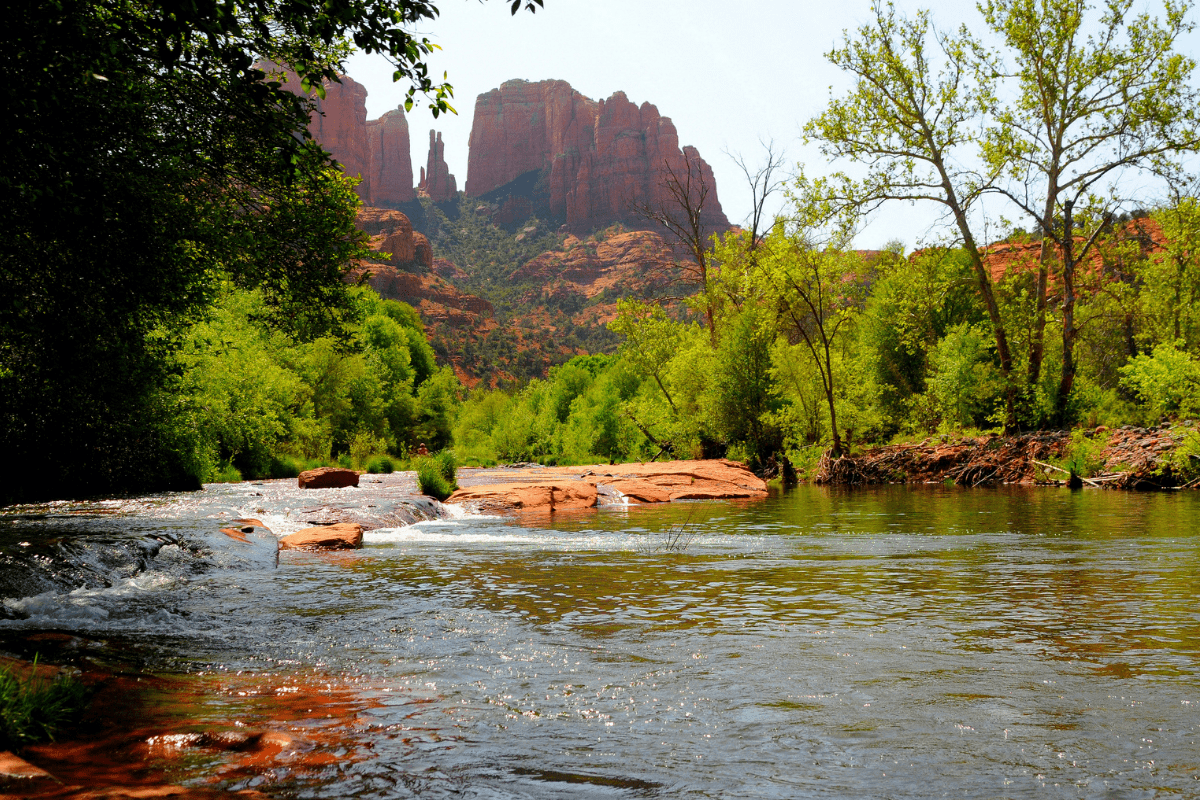Arizona's sports scene generates a staggering $24.2 billion annually while offering everything from $5 basketball tickets to swimming pools at baseball games. Whether you're a die-hard fan or just moved to the Valley of the Sun, this guide covers every team, ticket price, and taco Tuesday special you need to know about.
The economic powerhouse hiding in plain sight
Before diving into individual teams, let's address the elephant in the room: Arizona sports contribute 6.4% of the state's total GDP. That's not a typo. The sports industry here employs 347,500 people, which is roughly equivalent to the entire population of Anaheim. When Super Bowl LVII rolled through town in 2023, it dropped $1.3 billion into the local economy faster than you can say "halftime show."
Spring training alone brings in $180-700 million annually, depending on how many snowbirds decide to extend their stay. Add in the new sports betting revenue ($34.8 million in taxes from a $7.96 billion handle in 2024), and suddenly those stadium renovations start making sense. The Arizona Sports & Tourism Authority has pumped $84 million into Cactus League facilities and another $39 million into youth sports programs, though somehow we still rank 49th nationally in youth sports participation at 42.6%. Go figure.
Arizona Cardinals: America's oldest franchise in the desert
The Cardinals bring NFL action to the desert with a fascinating mix of history and high-tech innovation. As the league's oldest franchise (established 1898), they've called Arizona home since 1988, playing in a stadium that seems designed by someone who watched too much sci-fi. Despite just one Super Bowl appearance in their desert tenure, the team consistently draws passionate crowds who've perfected the art of tailgating in 115-degree heat.
The stadium that thinks it's a transformer
State Farm Stadium in Glendale might be the most over-engineered building in sports, and I mean that as a compliment. Built for $455 million in 2006, it features both a retractable roof AND a retractable grass field. Yes, the entire field slides outside on rails to sunbathe between games, because apparently even our grass needs a tan in Arizona.
Located at 1 Cardinals Drive (creative, right?), the stadium holds 63,400 fans for regular games but can expand to 73,000 when we inevitably host another Super Bowl. The Great Lawn offers 8+ acres of tailgating space that opens four hours before kickoff, giving you plenty of time to perfect your cornhole game while debating whether this is finally our year.
What you'll pay and what you'll see
Regular season tickets start around $100, which isn't terrible considering you're watching the NFL's oldest franchise. If you're feeling fancy, luxury loft suites run $12,000-40,000 per game, though at that price you better be getting more than just a good view and free popcorn.
The 2024 Cardinals finished 8-9, which sounds mediocre until you realize they went 4-13 the previous two seasons. Progress! Quarterback Kyler Murray threw for 3,851 yards and 21 touchdowns, while rookie sensation Marvin Harrison Jr. (yes, that Harrison) joined as the 4th overall draft pick. Six-time Pro Bowler Budda Baker anchors a defense that allowed 22.3 points per game, which is respectable enough to keep games interesting.
Parking runs $10, the stadium is fully cashless (welcome to 2025), and yes, we have light rail access. The venue has generated over $5 billion in economic impact since opening, though only one Super Bowl appearance to show for it – that heartbreaking 27-23 loss to Pittsburgh in 2008. But hey, we celebrated our 600th all-time victory in 2024, so there's that.
Phoenix Suns: Where basketball meets budget-friendly tacos
The Suns have revolutionized the NBA fan experience in ways that have nothing to do with winning championships. While assembling one of the league's priciest rosters, they simultaneously made arena food affordable for actual humans. It's a paradox that perfectly captures Phoenix basketball: champagne aspirations on a beer budget, except now the beer is actually cheap too.
The $2 menu that changed everything
In 2024, the Phoenix Suns did something revolutionary: they made arena food affordable. At the newly renamed PHX Arena (formerly Footprint Center), you can now get hot dogs, chips, water, soda, and popcorn for just $2 each. That's not a promotional price or a typo. A family of four can eat dinner for less than the cost of a single beer at most venues, saving approximately $74 compared to previous pricing.
This pricing miracle happened while the team assembled one of the NBA's most expensive rosters at $367+ million. The irony isn't lost on anyone. Stars like Devin Booker (the franchise's all-time leading scorer with 15,666+ points), Kevin Durant, and Bradley Beal command max contracts while fans munch on affordable arena snacks that cost less than a gallon of gas.
Downtown hoops with a side of disappointment
Located at 201 E Jefferson St in downtown Phoenix, the 17,071-seat arena offers perfect light rail access. Tickets range from $23 in the nosebleeds to $3,260 for courtside seats where you can smell Kevin Durant's cologne. Most fans settle somewhere in between, enjoying the downtown atmosphere and pretending not to notice our 0-3 record in NBA Finals appearances (1976, 1993, 2021).
The 2024-25 season started rough with the team languishing in 11th place in the Western Conference despite that massive payroll. After getting swept by Minnesota in the first round of the 2024 playoffs, the team hired Mike Budenholzer as coach, hoping his championship pedigree rubs off. Two-time MVP Steve Nash and 1993 MVP Charles Barkley watch from the Ring of Honor, probably wondering why championships are so elusive in the desert.
Arizona Diamondbacks: Baseball's best kept secret
If you're looking for the best overall value in Arizona professional sports, look no further than Chase Field. The Diamondbacks have somehow cracked the code on making Major League Baseball accessible to families without sacrificing quality. They've maintained MLB's lowest Fan Cost Index for eight consecutive years while delivering a product that includes playoff races, swimming pools, and the radical concept of letting people bring their own food.
The ballpark with a swimming pool
Chase Field in downtown Phoenix might be the most uniquely Arizona venue in professional sports. Where else can you watch a baseball game from a swimming pool? The pool beyond the right-center field fence rents for $3,500+, which sounds excessive until you realize it fits 35 people and includes food and drinks. Split that among friends and it's actually… still pretty expensive, but memorable!
The stadium's retractable roof opens in just 4.5 minutes, crucial for those rare Phoenix days when the temperature drops below 100. But here's the real kicker: Chase Field allows outside food in clear plastic bags. Bring your own peanuts and Cracker Jacks, or pack a full meal. Try doing that at Yankee Stadium.
Family-friendly pricing that actually makes sense
Upper deck seats start at $26, all-you-can-eat sections exist (dangerous but delightful), and Kids Free Weekends let anyone 15 and under in for free. Family four-packs including tickets and concessions cost just $44, which is less than what some teams charge for parking.
The 2024 team went 89-73, improving by five wins despite missing the playoffs. But attendance soared to 2,341,876 – the highest in 16 years. Ketel Marte won a Silver Slugger Award while aces Zac Gallen and Merrill Kelly anchored the rotation. The franchise's crowning achievement remains the 2001 World Series championship over the Yankees, making them the fastest expansion team to win it all (4th season) and delivering Arizona's only major professional sports championship.
Since 1998, the team has donated $80 million to Arizona nonprofits and distributed over 500,000 youth jerseys statewide. The 2025 season opens March 27 against Colorado, giving you plenty of time to practice your pool cannonball.
The Coyotes saga: A cautionary tale
Sometimes sports franchises and cities just aren't meant to be together, and the Arizona Coyotes became the poster child for that reality. After 28 years of arena drama, ownership changes, and bankruptcy proceedings, the team finally packed up for Salt Lake City in 2024. It's a story that serves as both a warning about the importance of proper facilities and a reminder that even in a market of 5 million people, success isn't guaranteed.
On April 18, 2024, the Arizona Coyotes relocated to Salt Lake City for $1.2 billion, ending NHL hockey in the desert. The team spent its final two seasons playing in 5,000-seat Mullett Arena on Arizona State's campus, which felt more like a really nice high school rink than an NHL venue.
Arena issues plagued the franchise throughout its tenure. After Tempe voters rejected a $2.1 billion arena proposal in May 2023, the writing was on the wall. The NHL maintains interest in returning to Arizona within five years if someone builds a suitable arena, but don't hold your breath. For now, the Tucson Roadrunners (AHL) carry the hockey torch, drawing 4,000-5,500 fans per game with tickets ranging from $15-50.
Phoenix Mercury: Champions on a budget
The Mercury might be Arizona's most overlooked success story, which is saying something in a market that also ignores spring training attendance records. With three WNBA championships and ticket prices that make movie theaters look expensive, they've built something special at PHX Arena. The catch? You have to actually know they exist, which surprisingly few Phoenicians do despite the team's stellar track record.
Three titles and $5 tickets
The Phoenix Mercury have quietly built the WNBA's most successful Western Conference franchise, with championships in 2007, 2009, and 2014. Playing at PHX Arena alongside the Suns, they offer professional basketball's most affordable experience with tickets starting at just $5. Yes, five dollars. That's less than a fancy coffee drink.
The 2025 roster features All-Stars Satou Sabally (17.6 PPG) and Alyssa Thomas (16.4 PPG, 9.2 APG), though the team plays without legendary guard Diana Taurasi, who retired as the WNBA's all-time leading scorer. After improving from 9-31 to 19-21 in 2024, the Mercury returned to the playoffs for the 11th time in 12 years under new coach Nate Tibbetts.
The Purple Palace experience
Mercury games regularly draw 10,000+ fans who've nicknamed the arena the "Purple Palace" for its passionate atmosphere. The team shares the Suns' $2 concession menu, making this arguably the best sports value in America. Theme nights including Pride Night and Noche Latina celebrate Arizona's diverse communities while providing entertainment that goes beyond basketball.
Average ticket prices hover around $86, still a bargain by professional sports standards. The team has built a loyal following by combining on-court success with community engagement and prices that don't require a second mortgage.
Phoenix Rising FC: Soccer's next big thing?
Professional soccer in Phoenix exists in a fascinating limbo between minor league success and major league ambitions. Rising FC has dominated the USL Championship, winning titles and setting attendance records, yet remains stuck in a modular stadium that moves around the city like a food truck. It's a perfect metaphor for soccer in America: tremendously popular among those who know about it, mysteriously invisible to everyone else.
Phoenix Rising FC captured the 2023 USL Championship and dreams of bigger things. The team plays in a 10,000-seat modular stadium that's been physically relocated three times since 2017, currently residing at 3801 E. Washington Street. If that sounds weird, welcome to Phoenix soccer.
Tickets range from $15-100, with the team famous for $1 beer promotions that pack the stands. The 2024 squad finished 8-9-9 under interim coach Diego Gomez after defending their championship. But the real story is their MLS ambitions. Ownership includes Chelsea legend Didier Drogba, and they've outlined plans for a $457-500 million climate-controlled stadium.
Phoenix remains the largest U.S. market without an MLS team, but expansion fees have ballooned to $500 million. The franchise's 20-game winning streak in 2019 set North American soccer records, proving the market can support top-tier soccer. Whether MLS agrees remains to be seen.
Semi-pro options for every taste
Beyond the major leagues, Arizona's semi-professional sports scene offers surprising depth and quality. From G-League basketball in a former NHL arena to spring training games that feel more intimate than your family barbecue, these options often provide better value and closer athlete access than their big-league counterparts. Plus, where else can you watch future MLB stars for $10 while sitting close enough to hear their between-innings conversations?
The Valley Suns bring G-League action
The Valley Suns launched their inaugural 2024-25 season at Mullett Arena in Tempe, the same venue the Coyotes abandoned. As the Phoenix Suns' G-League affiliate, they reached the conference semifinals while charging just $360 for season tickets. That's less than a single lower-bowl Suns game.
Spring training: Arizona's annual invasion
Every February and March, 15 MLB teams descend on the Valley for Cactus League spring training. This generates $180-700 million annually while giving fans intimate access to big league players. Tickets are cheap, beer is cold, and the weather is perfect. It's basically baseball paradise.
Other semi-pro highlights:
- Arizona Rattlers (Indoor Football): 7-time champions, most recently in 2024
- Tucson Sugar Skulls: Arena football for those who miss the Rattlers
- Arizona Complex League: 17 rookie teams, free admission
- Multiple USL and UPSL soccer clubs
- Adult rugby and lacrosse leagues
Future developments worth watching
The next chapter of Arizona sports will be written by ambitious facility plans and expansion dreams that may or may not materialize. We've learned to be skeptical after the Coyotes debacle, but legitimate momentum exists for several projects. The question isn't whether Arizona can support more teams or better facilities – it's whether anyone wants to pay for them in a state that just watched an NHL team play in a college arena.
MLS dreams and NHL schemes
Phoenix Rising FC continues pushing for MLS expansion despite the $500 million price tag. Mesa has been identified as a potential stadium site, though negotiations remain ongoing. Meanwhile, the NHL hasn't given up on Arizona. Proposals include a $3 billion mixed-use development with a $1 billion arena targeting 2027-28. Both seem optimistic given Arizona's track record with stadium deals.
Facility upgrades on deck
More realistic are the planned improvements to existing venues:
Chase Field upgrades:
- $500 million over 30 years
- New AC system (crucial in Phoenix)
- Capacity reduction planned
- Governor Hobbs approved funding in 2024
Cardinals improvements:
- $100 million facility investment
- Response to poor NFLPA ratings
- Focus on player amenities
Making the most of Arizona sports
The beauty of Arizona's sports landscape lies in its diversity and accessibility. You can catch a Mercury game for $5 on Tuesday and splurge on Cardinals club seats on Sunday. The venues offer unique experiences you won't find elsewhere – retractable grass fields, swimming pools at baseball games, and now $2 arena food that doesn't taste like cardboard.
Getting tickets is straightforward through team websites or Ticketmaster, though checking the secondary market often yields deals, especially for weeknight games. Most venues offer solid public transportation options, with light rail serving downtown Phoenix venues and ample parking available in Glendale.
The schedule works year-round: Cardinals in fall/winter, Suns and Mercury overlapping with Diamondbacks in spring/summer, and Rising FC filling the gaps. Add in spring training, semi-pro options, and the occasional mega-event, and you'll never lack for live sports entertainment.
The bottom line on desert sports
Arizona's sports scene punches above its weight, contributing $24.2 billion annually while providing entertainment options for every budget. We've got the country's oldest NFL franchise, the most affordable NBA experience, MLB's most family-friendly ballpark, and a WNBA dynasty that flies under the radar. We lost the Coyotes, but gained the Valley Suns and continue dreaming of MLS soccer.
Whether you're a lifelong fan or recent transplant, there's never been a better time to explore Arizona sports. Just remember to stay hydrated, embrace the air conditioning, and don't be surprised when your grass field slides outside for some sunshine. That's just how we roll in the desert.





